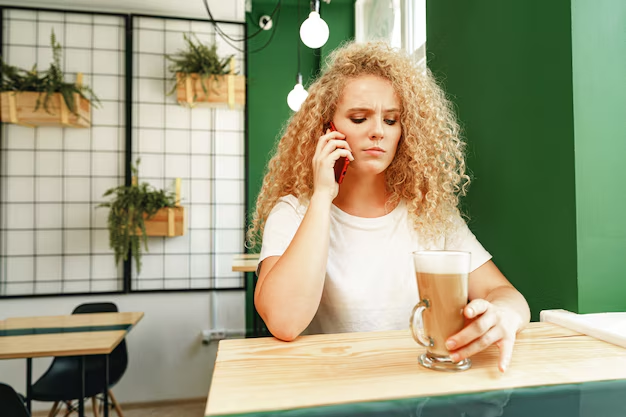Can Your Morning Brew Make You Anxious? Understanding Coffee and Anxiety
Each day, countless individuals across the globe rely on coffee to jump-start their mornings or provide a much-needed energy boost. However, while its invigorating aroma and caffeine kick can be welcoming, can this beloved beverage also be responsible for causing anxiety? If you've ever felt a bit jittery after your coffee ritual, you're not alone. This article delves deep into the connection between coffee and anxiety—unpacking how your daily dose of caffeine could be impacting your mental well-being.
The Role of Caffeine in Coffee
What is Caffeine?
Caffeine is a natural stimulant most commonly found in coffee, tea, and certain soft drinks and energy products. It stimulates the central nervous system, temporarily warding off drowsiness and restoring alertness. In moderation, caffeine can improve mood, boost brain function, and enhance physical performance.
How Much Caffeine is in Your Cup?
The caffeine content in coffee can vary significantly. On average:
- Brewed coffee: Contains about 95 mg of caffeine per 8-ounce serving.
- Espresso: Packs about 63 mg per ounce.
- Decaf coffee: Still contains a small amount of caffeine, usually about 2-5 mg per 8-ounce cup.
Understanding your coffee's caffeine content is crucial for managing intake and its potential effects on anxiety.
Coffee and Anxiety: What's the Connection?
Why Might Coffee Trigger Anxiety?
Coffee-related anxiety boils down to its primary ingredient: caffeine. As a stimulant, caffeine increases adrenaline levels and can thus lead to heightened alertness and energy. However, when consumed in large quantities, this can also make you feel jittery, nervous, or anxious.
How Does Caffeine Impact Anxiety?
Here’s how caffeine might contribute to anxiety:
- Increased Heart Rate: Caffeine can lead to a faster heartbeat, a symptom also associated with anxiety.
- Nervousness: High caffeine levels can induce nervousness or restlessness, amplifying feelings similar to anxiety.
- Insomnia: Sleep deprivation is a known anxiety trigger. Caffeinated coffee consumed later in the day can interfere with the ability to sleep, thereby increasing anxiety symptoms.
- Hormonal Changes: Caffeine can stimulate the production of cortisol, a stress hormone that might heighten anxiety responses.
Who is More Likely to Experience Anxiety from Coffee?
Those with a sensitivity to caffeine or pre-existing anxiety disorders may find that coffee exacerbates their symptoms. Additionally, factors such as genetics, overall health, and lifestyle habits can influence how you react to caffeine.
Recognizing Symptoms of Caffeine-Induced Anxiety
Common Indicators
If you experience the following symptoms after your cup of coffee, caffeine might be the culprit:
- Increased heart rate
- Restlessness or nervous energy
- Stomach upset or gastrointestinal distress
- Difficulty concentrating
- Anxiety or panic attacks
Differentiating Between Regular Anxiety and Caffeine-Induced Symptoms
It can be a challenge to discern whether anxiety is a result of caffeine or other external factors. Keeping a journal of your caffeine consumption along with observed symptoms can help identify patterns and better manage your intake.
Managing Caffeine and Anxiety
Finding Your Caffeine Tolerance
Understanding your personal caffeine threshold is important. Consider reducing your coffee intake gradually to monitor changes in anxiety symptoms—this can help escape withdrawal symptoms while pinpointing the right balance.
Alternative Ways to Boost Alertness
Swapping coffee for other beverages may also be beneficial:
- Herbal Tea: Chamomile or peppermint tea offers calming effects without caffeine.
- Green Tea: Boasts less caffeine and contains L-theanine, an amino acid that promotes relaxation.
- Matcha: Provides sustained energy with a less jittery experience due to its unique blend of nutrients.
Practical Tips for Reducing Caffeine Consumption
- Opt for Decaf: Not completely caffeine-free, but significantly lower.
- Mind the Clock: Consume coffee earlier in the day to prevent sleep interference.
- Hydrate: Drink plenty of water to stay hydrated and reduce caffeine dependency.
Mindfulness and Relaxation Techniques
Introducing relaxation techniques can help counteract anxiety symptoms:
- Deep Breathing: Calms the mind and body.
- Meditation: Promotes mindfulness and reduces stress.
- Yoga: Combines physical activity with mental relaxation.
Considering the Bigger Picture
Beyond Coffee: Other Sources of Caffeine
It's not just coffee—keep an eye out for other sources of caffeine:
- Soft drinks
- Energy drinks
- Chocolate
- Certain medications and supplements
Balancing Lifestyle Factors
A holistic approach to managing anxiety involves more than just moderating caffeine. Ensure a balanced lifestyle with:
- Regular exercise
- Sufficient sleep
- Healthy diet
- Stress management
When to Seek Professional Help
If anxiety significantly impacts daily life, consider reaching out to a healthcare professional for guidance tailored to your unique needs.
Final Insights
Understanding the relationship between coffee and anxiety is a stepping stone to taking control of your wellness journey. With the right balance, it’s possible to enjoy the many benefits of coffee while minimizing its adverse effects on mental health. Listening to your body, learning your limits, and incorporating positive lifestyle changes can pave the way toward a less anxious existence.
Quick Summary of Coffee, Caffeine, and Anxiety ☕
- Caffeine Content Varies: ☕ Brewed coffee (95 mg), Espresso (63 mg/oz), Decaf (2-5 mg) per serving.
- Symptom Checklist: 💓 Fast heartbeat, 😕 Nervousness, 🛌 Insomnia, 😟 Anxiety after intake.
- Alternatives to Curb Anxiety: 🍵 Swap with herbal or green tea, ☀ Have coffee earlier in the day.
- Caffeine Reduction Tips: 👌 Gradually decrease intake, 💧 Stay hydrated, ✔ Note symptoms and triggers.
- Holistic Approach: 🧘♀️ Practice mindfulness, 🏃♂️ Exercise, 🍎 Maintain a healthy lifestyle.
Tailoring your coffee habits to support your mental well-being can lead to more enjoyable and stress-free experiences with this cherished beverage.

